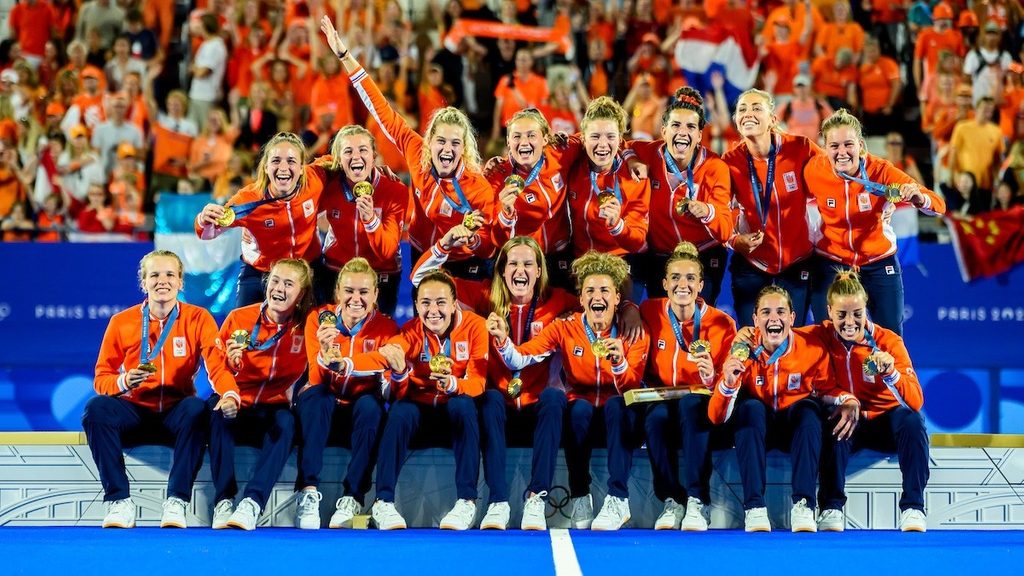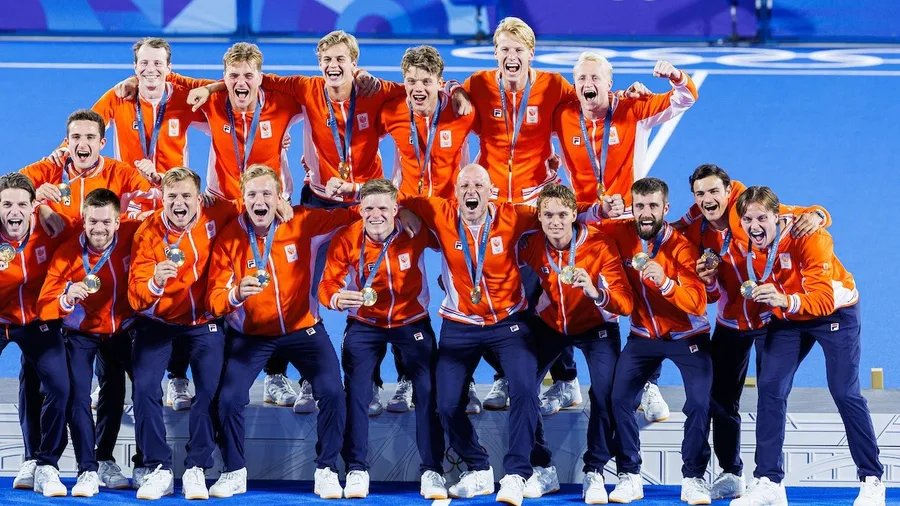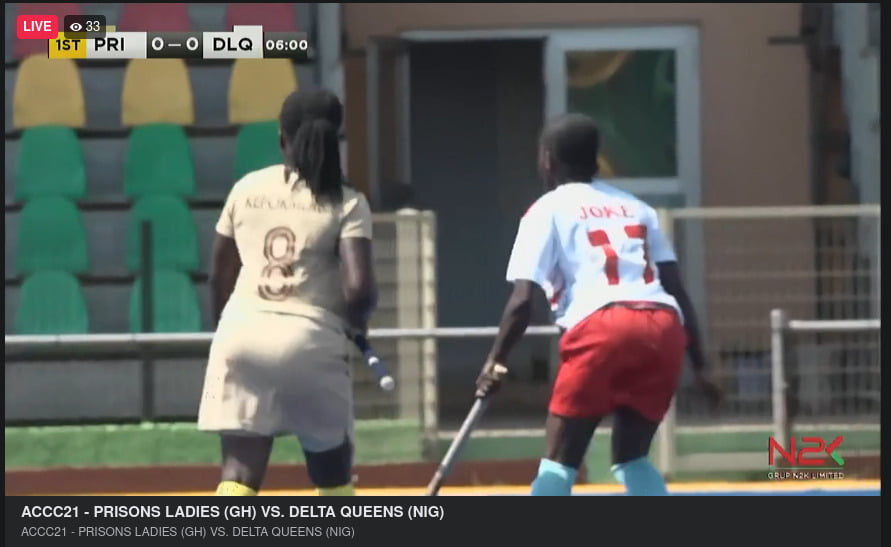Hockey at Paris 2024 came to a conclusion on 9 August, with a historic double gold for Netherlands, as the men’s and women’s teams of a nation won the hockey gold in the same edition of an Olympics for the very first time! Germany men and China women added a silver medal to their trophy cabinets, while India men and Argentina women made it back-to-back medal finishes, winning the bronze medals.
The competition for medals was wide open, and there were plenty of surprises and upsets as the jostling for medal finishes shook up the world rankings. Join us as we take a look at the updated rankings, following the conclusion of the Olympic Games Paris 2024.
In the men’s world rankings, Olympic champions Netherlands (3168) stand at the top of the rankings. Netherlands came into the games in the top spot, but dropped to third in the pool stage following a draw against Great Britain and a loss to Germany, but four consecutive wins to finish with the title, sees them climb back into the first place.
Germany (3035) once again showed their big tournament prowess, as they came into the event ranked fifth in the world, but registered big wins over the likes of Netherlands, Great Britain, Argentina and India to climb into second place in the world rankings, on the way to the silver medal.
England* (2973), Belgium (2959) and India (2849) complete the top-5 places. Belgium in particular will be disappointed with their quarter final exit, coming in as defending champions. The Red Lions had a near perfect pool stage with 4 wins and a draw that had catapulted them to the top of the world rankings, but a loss to Spain in the quarterfinal saw them drop down to fourth. Germany’s ascent also sees England drop down one spot from their pre-Olympics ranking of second place, to third, while India have climbed one spot up bridging the gap to the top-4, following a second consecutive bronze medal finish at the Olympics.
Australia (2714), Argentina (2643) and Spain (2470) find themselves in the sixth, seventh and eighth positions respectively. Australia began the Olympics ranked fourth in the world, and climbed into the top-3 after the first win over Argentina, but a disappointing campaign where they endured losses to Belgium, India and got knocked out by Netherlands in the quarterfinals, sees them drop down to sixth, less than 100 points clear of Argentina in seventh. Spain fell just short of the bronze medal and while their ranking remains unchanged, the gap to seventh place is less than half of what it was before Paris 2024.
Ireland (2078), France (2016), South Africa (1982) and New Zealand (1958) take up the ninth to twelfth spots in the world rankings with all four teams competing at the Olympics, but failing to make the quarterfinals. Ireland’s victory over New Zealand in their final pool stage game, lifted them two spots into ninth place at the expense of France who ended their pool stage of the games with just one point following a draw against Spain. South Africa moved up one place thanks to their draw against Great Britain and win over France, while New Zealand’s failure to collect any points at the Olympics sees them drop two spots down from tenth.

In the women’s world rankings, Netherlands (3641) remain infallible, adding a fourth Olympic gold medal from the last five editions of the Games! While China gave them a big scare in the gold medal match, Netherlands prevailed in the end, completing a perfect campaign with 8 wins in 8 matches.
Argentina (3059) continue to remain in a distant second place, following their bronze medal performance at Paris 2024. Belgium (2852) climbed one place to third in the world after narrowly missing out on their first ever Olympic medal, with back-to-back shoot-out losses to China in the semi-final, and Argentina in the bronze medal match, but it was still an impressive campaign from the Red Panthers in just their second ever Olympic appearance!
Germany (2739) exited in the quarterfinals at Paris 2024, a result which saw them drop down one spot, into fourth. Australia (2720) continue to remain in fifth place and similar to Germany, would be disappointed in their quarterfinal exit, following a stellar pool phase where they finished top of their pool with 4 wins and a draw.
China’s (2567) incredible run in Paris 2024, which saw them come within a whisker of claiming the gold medal, has resulted in a two-place climb in the world rankings table as they now sit in the sixth spot, ahead of England* (2419) and Spain (2322) in seventh and eighth respectively.
India (2087) and New Zealand (2024), who missed out on Olympic qualification, round out the top-10 world rankings.
Among the teams that competed at the Olympics outside of top-10, are Japan (2010) in eleventh place, narrowly trailing New Zealand. United States (1898) were extremely competitive throughout the pool stage of the Olympics and registered points through a draw against Spain and a win over South Africa, and find themselves in thirteenth place in the world rankings.
South Africa (1403) and France (1371) both ended Paris 2024 without scoring any points and are placed twentieth and twenty second in the world respectively. Both teams have plenty of positives to take away from the Olympics though, with this being the first appearance for France at an Olympics, while South Africa, given their very young squad, were competitive, not losing by more than one goal in any of their matches except one, which came in the form of a 4-2 loss to Argentina, where South Africa were leading 2-1 until the final ten minutes!
*England competed as a part of Great Britain in the Olympic Games Paris 2024.
To see the complete FIH World Rankings, please click here.
The rankings calculations model that FIH introduced on 1st January 2020 moved away from the previous tournament-based rankings system to a dynamic, match-based method where opposing teams exchange points in official, FIH sanctioned games. The number of points exchanged depends on the result of the match, the relative ranking of the teams and the importance of the match. More information about the new rankings model can be found below.
How the FIH World Rankings work:
The number of points exchanged depends on the result of the match, the relative ranking of the teams and the importance of the match.
FIH World Rankings explained:
- Based on the Elo rating system, which is used as the basis of many other sports ranking systems
- When two nations play against each other, a number of ranking points are exchanged between them
- In every match, the number of points gained by one team is exactly matched by the number of points lost by the other
- Teams will win more points for beating teams ranked above them, and therefore teams will lose more points for losing to a team ranked below them
- Teams will win less points for beating teams ranked below them, and therefore teams will lose less points for losing to a team ranked above them
- If a draw occurs, the lower ranked team will gain a small number of points and the higher ranked team will lose the same number of points
- The number of points exchanged is dependent on the result of the match (win, lose, shootout win/loss or draw), the importance of the match (part of a major tournament, or a test series for example), and the relative difference in ranking points between the teams before the match.
More details about the formula used in the algorithm, weightings of matches and other factors can be found HERE together with a Frequently Asked Questions document HERE.
Source: FIH.hockey







